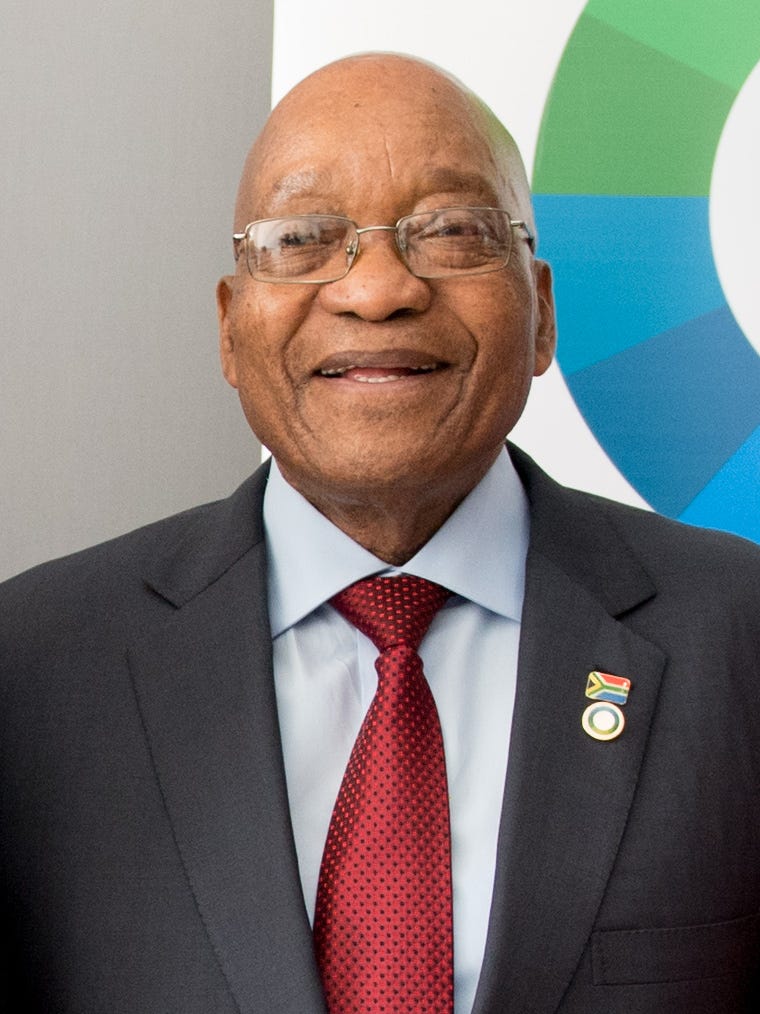Zuma is a symptom, not the disease
As expected by the cynical among us, the motion of no confidence held on the 8th of August failed to oust incumbent President Jacob Zuma. It did seem to come close, however. Opposition parties are simultaneously celebrating how close their loss actually was, while lamenting that it was a loss at all. These results show that Zuma’s position is slipping, and this does give his opponents reason to celebrate.
But those thinking that merely ousting Zuma will fix this country are sorely mistaken. Zuma is not the cause of this country’s failure, but merely a symptom of the true causes.
The fact that the African National Congress (ANC), which many had vested so much faith in prior to the motion, continued to support the president, has pushed many people to adopt a much more accurate view of our country’s problems. The Zuma Must Fall Facebook page, for example, has renamed itself to ‘ANC Must Fall’. This broader analysis of the country’s problems is good, but it doesn’t go broad enough.
The primary overarching causes of plight in South Africa, and Zuma as an extension can be summarised into two causes: Ideology and our institutions.
Ideology
Ideology is often ignored because it isn’t tangible. It is abstract and only those with a philosophy or political science background tend to care about it. But ideology shouldn’t be ignored. It makes up the foundation of our decision-making process, it determines our goals and our values. Ideology is inseparable from politics. The ANC has an ideology that it truly believes and one that it uses to gain support.
The ANC ideology is broadly referred to by them as ‘Transformation’ and the ‘National Democratic Revolution’. It can also be described in two other statements, ‘Vive la Révolution’ and ‘A luta continua’. This ideology is one of a never-ending revolution – common among revolutionary organisations that rise to power. Running a state requires competence and technocrats. Running a revolution, according to them, requires passion. Passion is often easier to achieve than competence.
The particular brand of revolutionary ideology that the ANC adheres to can be seen in the company it keeps – the South African Communist Party (SACP) and Cosatu. While the SACP and Cosatu are blatant Marxist-Leninists, however, the ANC temper them into a more Afro-Socialist/Afro-Nationalist organisation. This ideology allows the ANC to control the state and interfere in the economy as much as they want, while ensuring they can always fall back on their racial rhetoric.
This ideology has infected much of the country. The never-ending revolution can be seen prominently in our country’s destructive protest culture, where there is no room for negotiation and where discontent must be shown with the burning of buildings.
Ideology has also shown its influence on our policy. Socialist and racial-nationalist policies and regulations have crushed our economy and held back our recovery and growth. Politicians say that we shouldn’t measure our success by ‘capitalist’ measurements. But, I say we should look at the mass emigration out of our country and the continuing rise of crime and discontent.
Our institutions
South Africa’s constitution, as a formal institution, isn’t perfect. But many act as if it is. This is dangerous. Our constitution was designed for a Mandela presidency, which we no longer have. As such, we are seeing the negative effects of bad institutions.
Our constitution doesn’t provide for meaningful separation of powers; something sorely needed to prevent anyone from having too much power. Our electoral system sees parliament appointing the president and then the president appointing Constitutional Court judges. What this means is that whoever wins the parliamentary election, owns the country.
A responsible separation of powers would never allow this, as it allows easy state capture of the crucial elements of our government.
Simply, it makes the president too strong. It doesn’t matter that Zuma is a bad president. What matters is that our political system allows him to cause a lot of damage. A good political system should minimise the power of politicians so to prevent these abuses of power.
South Africa is dominated by corruption on all levels of government. Unfortunately, this is common among most African states. This ‘neo-patrimonialism’ is a system whereby those in power use state resources to pay people to maintain their loyalty. This is exactly the system that the Guptas and Zuma are using to maintain control over government.
Patrimonialism is a form of governance in which all power flows directly from the leader. This constitutes essentially the blending of the public and private sector. These regimes are autocratic or oligarchic and exclude the upper and middle classes from power. - Patrimonialism, defined by Wikipedia.
Neo-patrimonialism erodes good institutions and the economy. Rulers like it because it means they can pay people off with money they’ve stolen from the taxpayers. It rewards the corrupt, as opposed to free markets, which rewards productivity.
Conclusion
Ideology and weak institutions are more fundamental reasons for South Africa’s failure than merely blaming one man. We cannot responsibly lay the fault of all this country’s wrongs on one man, as we will then fail to fix the real problem.
It is right and just to prosecute a criminal, and necessary to oust a leader who is running the country into the ground, but we cannot stop there. We need to realise that Zuma is not the fundamental cause of South Africa's problems. If we don't, then a new Zuma (possibly, literally) will just replace him. We need to triumph over corrupt institutions with practical and painful reforms and win an intellectual victory to prevent the further decline of our country at the hands of revolutionary-wannabes.
Hopefully South Africans will start realising that Zuma is only the tip of the iceberg and that removing him is by no means a solution to our problems.
Nicholas Woode-Smith is the Managing Editor and a Co-Founder of the Rational Standard.





